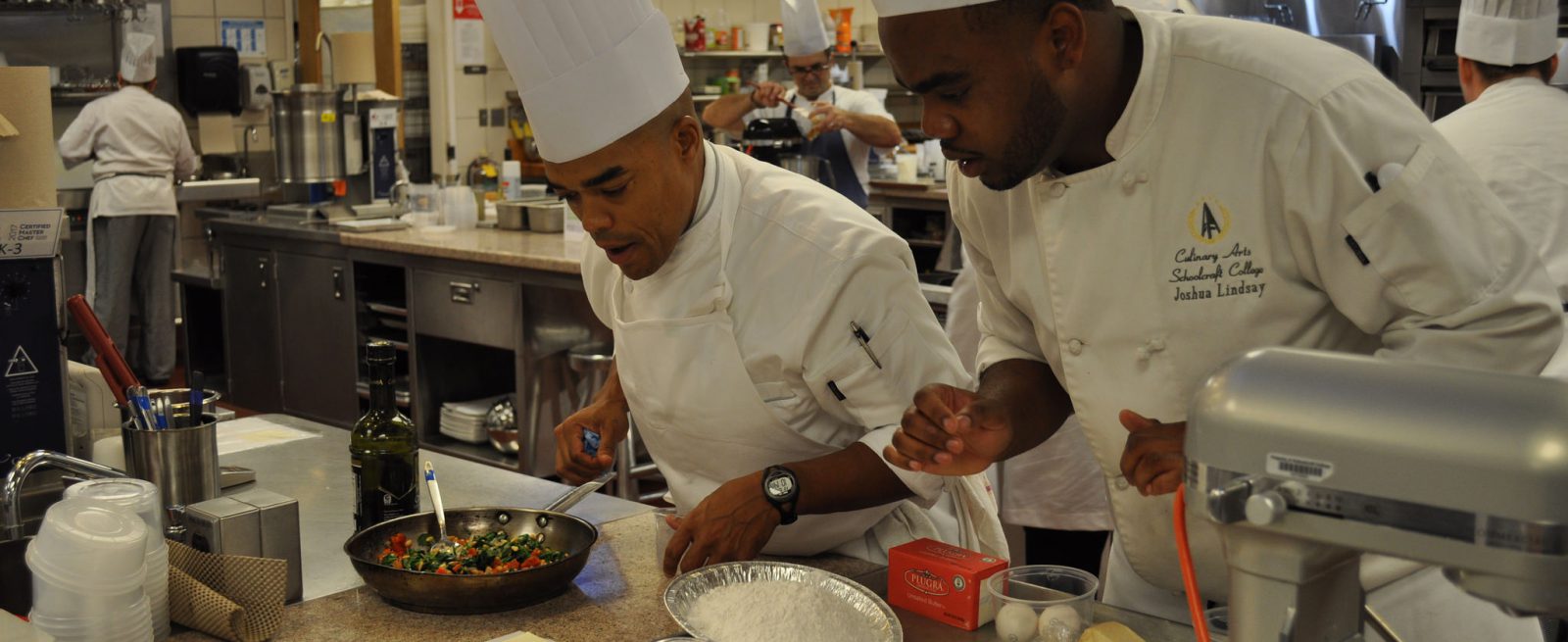MRM Talking With: ACF’s 2017 Certified Master Chefs®
8 Min Read By MRM Staff
The title of Certified Master Chef (CMC), presented solely by the American Culinary Federation (ACF) in the U.S., is the highest level of certification a chef can receive and represents the pinnacle of professionalism and skill.
Today, there are 68 CMCs and 10 Certified Master Pastry Chefs® (CMPC) in the nation. To apply for the CMC exam, a candidate must be a Certified Executive Chef® or Certified Culinary Educator®, provide two letters of recommendation from current CMCs or CMPCs, and have completed education courses on sanitation and food safety, cost management, management and wine. The candidate must also secure funding for the cost of the exam process including the exam fee, travel expenses and practice materials.
The 2017 American Culinary Federation Certified Master Chefs are Gerald Ford, CMC; Joseph Leonardi, CMC; and Shawn Loving, CMC, CCA.

Gerald Ford, CEC®, is executive sous chef at The Everglades Club in Palm Beach, Florida. He is the winner of the Les Amis d’Escoffier competition in New York City. He earned the opportunity to work at Moulin de Mougins, a three-star Michelin restaurant in Mougins, France. He set out on his culinary journey opening the Mandarin Oriental Hotel in New York City and became executive chef of Château Robert in Montgaillard, France. Ford competes in both hot- and cold-food competitions, and is a gold medalist ice sculptor.

Joseph Leonardi, CEC®, is director of culinary operations at The Country Club in Chestnut Hill, Massachusetts. In 2009, he earned the title of U.S.A.’s Chef of the Year™ at Cook. Craft. Create. ACF National Convention & Show. Previously, Leonardi managed ACF Culinary Team USA 2016. In 2012, he served as captain of ACF Culinary National Team USA, earning a silver medal in the hot-food kitchen and a silver medal in the cold-food presentation at the 23rd Internationale Kochkunst Ausstellung International Culinary Exhibition, commonly known as the “culinary Olympics,” in Erfurt, Germany.

Shawn Loving, CEC®, CCA®, is Culinary Arts department chair and full time faculty at Schoolcraft College in Livonia, Michigan. He has worked as executive chef for the U.S. men and women’s Olympic basketball teams in Beijing, China, and Rio de Janeiro, Brazil. In addition, he was an executive chef for the 2010 FIBA World Championships in Istanbul and the 2014 World Championships in Madrid, Spain. As a seasoned competitor, he is the recipient of numerous awards and medals from the American Culinary Federation, and was a member of the Michigan Culinary Olympic Team in 2012.
During the eight-day exam, candidates must maintain an average score of 75 out of 100 points to be eligible to continue. Scores are tallied based on kitchen skills, plate presentation and taste. Candidates are tested on the following subjects by ACF-certified chefs:
- Healthy cooking
- Buffet catering
- Classical cuisine
- Freestyle cooking
- Global cuisine
- Baking and pastry
- Continental and Northern Europe cuisines
- Market basket
In this edition of MRM “Talking With,” the newly certified chefs discuss the challenges they faced and why they felt this pursuit was important to them.
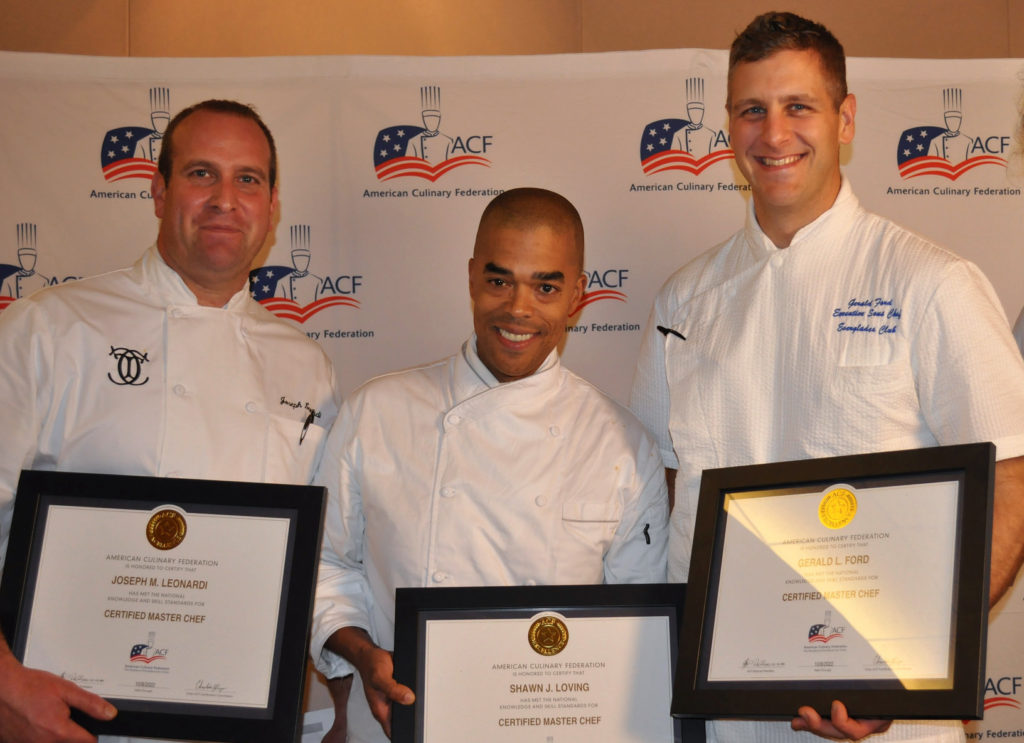
Why did you want to pursue the American Culinary Federation’s Certified Master Chef® (CMC®) certification?
Gerald Ford: I once watched a CMC prepare a roasted chicken, mashed potatoes, green beans and pan gravy, and the resulting meal was better than anything I’d ever had. That was at a point where I knew I loved cooking, and I realized that my passion could become my profession as well. That was why I became a cook. Working to accomplish that goal, that level of excellence, has consistently provided me with some of the deepest learning experiences and largest periods of growth through my career. The ACF CMC certification sets a standard, and it gave me a tangible path to pursue.
Joseph Leonardi: It was all about a personal goal I set for myself about 15 years ago. I had accomplished great things in my career and in my personal life, but I was never satisfied. I needed to test my skills in the most notable culinary exam in the United States, some say in the world—the Certified Master Chef exam. I wanted to be recognized as someone who worked hard throughout his or her career, worked their way to the top, and that is what I did.
Shawn Loving: Throughout my 30-year career, I have always desired to put myself in a position to present to the best in the industry. I knew that if I pursued this certification, with all that it involves, there was no way that it would not enhance my overall craftsmanship as a chef. It was also essential for me to set an example of perseverance through the pursuit of excellence for future generations of cooks.
How did you prepare?
Gerald Ford: I started preparing for the exam 15 years ago. Working for CMCs, apprenticing for the exam, watching an exam, interacting with Certified Master Chefs and developing really high-level habits were great ways to begin. For five months ahead of the 2017 exam, I spent 50 hours a week practicing and preparing. In order to put myself in the best physical condition, I exercised six days a week. As for the mental aspect, I meditated, listened to really hard metal music and ran myself into the ground every chance I got.
Joseph Leonardi: I cooked, cooked every day that I was at work, and if I didn’t cook, I made sure I read or worked on a skill. So to be honest with you, I didn’t change my routine in many ways—this is what I do every day. That is what this exam is, a cooking exam.
Physically, about a year ahead of the exam, I changed my way of eating and started an exercise routine. This was to help build endurance and, of course, shed some pounds. It is important to not only be physically fit to take the exam, but also to be mentally fit. Something is going to go wrong in the kitchens, most likely more than once, and you need to be able to talk yourself through it.
Shawn Loving: I prepared with a deeply rooted self-discipline, focusing on both physical and mental elements. This test requires an endurance much more complex than cooking calls for alone. Time spent at the gym early in the morning before work, long research and development sessions winnowing down details of recipes, timed sessions after my typical work day—these were just some of the tools that I employed to get myself into shape. By keeping to these daily habits, I did not allow myself to veer from my goal. When something did not turn out quite right, I would refocus and reevaluate, holding myself accountable while keeping my sights on the end of the journey.
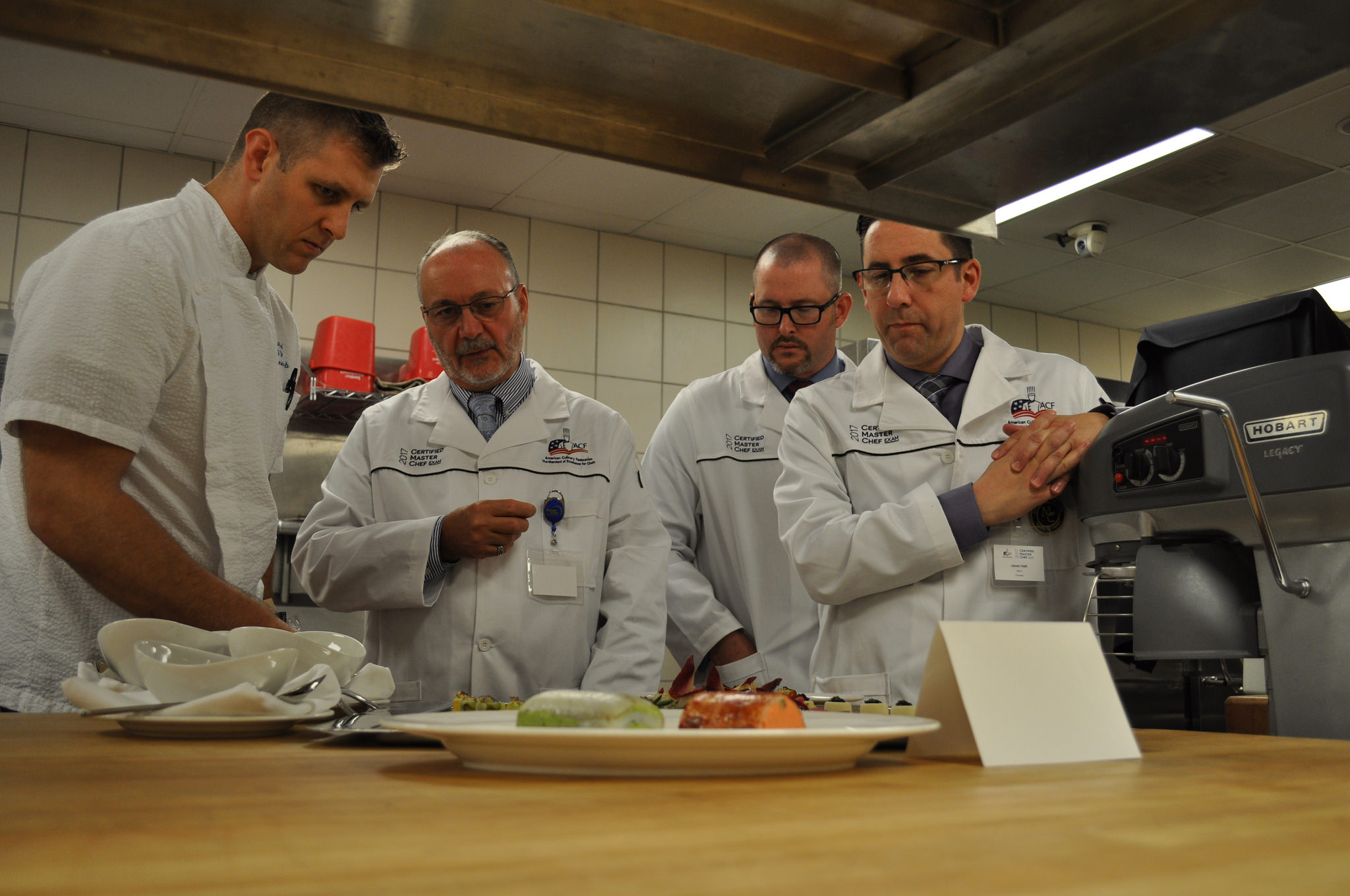
Why do you feel this is important for your culinary career?
Gerald Ford: I feel that reaching for greatness is about a process, developing great habits and then keeping to consistent action. Successful completion of the exam reinforces my belief and my confidence in what I do every day, and in the standards I hold my team to.
Joseph Leonardi: I personally chose a certification route to serve as a validation of my skills in my career. I looked at it as a stepping stone as I grew professionally. Employers look to certified chefs for leadership, expertise and dedication to the industry, and because I believe in those standards, I felt it would be important to become certified. Young cooks also see you striving for your goals and working hard toward something good. It makes you a better chef and mentor to these young culinarians.
Shawn Loving: I was not focused on how the certification would be important for my career for personal accolades, as much as how it would encourage me to develop a continued drive toward never becoming complacent on the highest standards of my craft. Overall, I will remain a student first. I will also remain committed to excellence and to giving back to hospitality in its many different forms. You must remain in love daily with your craft so that it does not feel like a job.
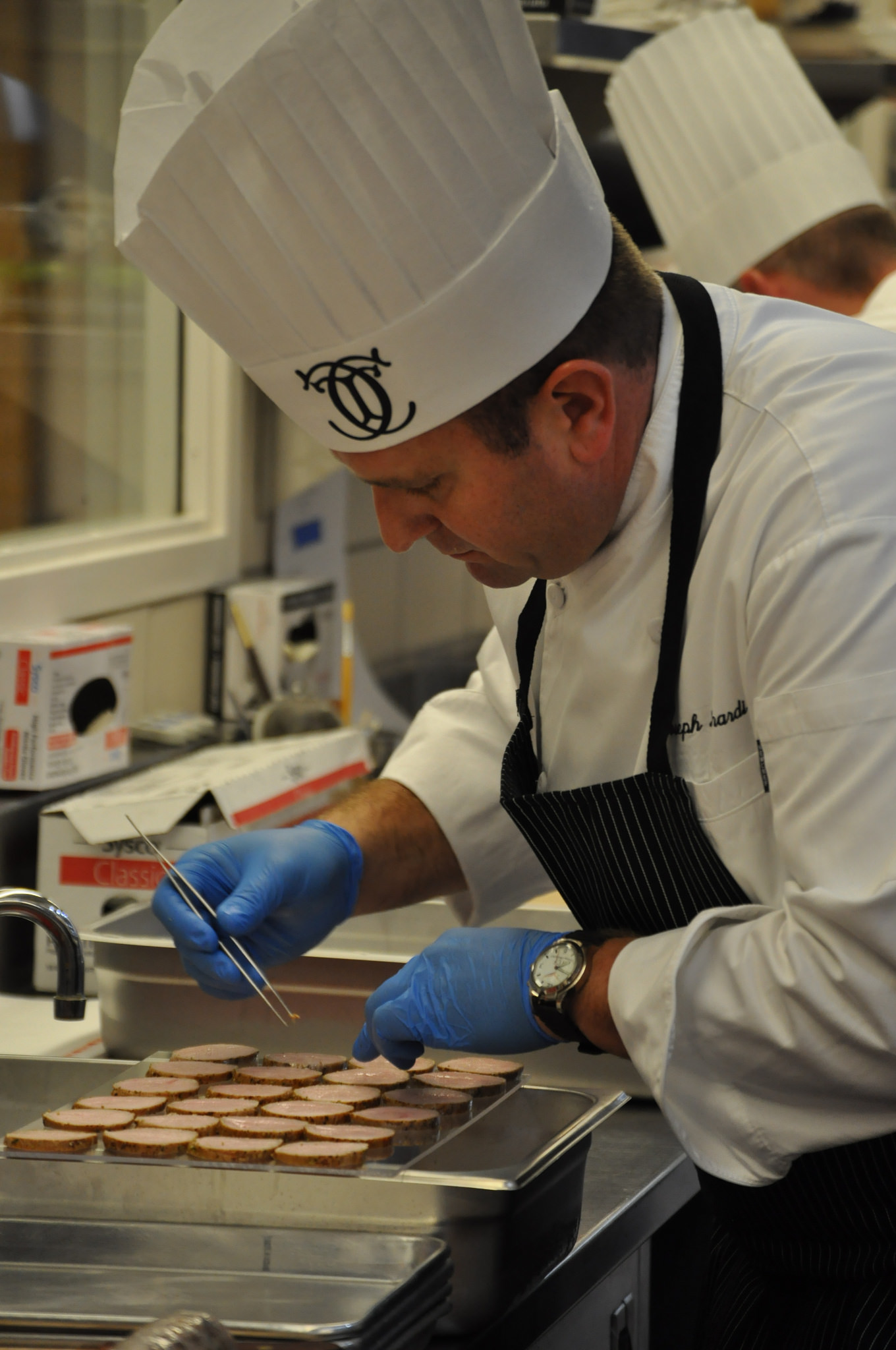
What was the exam like?
Gerald Ford: The Certified Master Chef exam was the hardest challenge I have ever ventured into; every aspect of my ability was tested, every day. There is no time to be anything other than what you are as a chef. Mentally, the test pushed me right to the edge. I think that the mental aspect is the hardest part to deal with. The test puts you in a position to question things you are normally confident in. Ultimately, though, it’s the greatest process I have ever been a part of.
Joseph Leonardi: I have competed internationally for many years and have over 25 gold medals from the international stage. But by far, this was the hardest achievement I have earned in my professional career. Putting yourself out there, in front of some of the most recognized chefs in the USA, is simply stressful. You’re mentally, physically and emotionally challenged every day for eight days (nine cooking baskets), and you have to perform at the highest level of your abilities. You are consistently striving for excellence every day.
Shawn Loving: The eight-day exam felt like condensing 30 years of my professional cooking and presenting it to the CMC judges for approval. Thousands of hours and many thousands of meals were compressed and presented as my life’s work in the daily windows. The intensity of this exam is not to be taken lightly, for example by calling it a cooking competition or by comparing it to television shows. It is most certainly at a different level.
What was the most challenging aspect for you?
Gerald Ford: I think the most difficult thing for me was looking at each day as its own day. It became necessary to move on very quickly from the day just completed, good or bad, in order to put the focus where it was most needed. That was a real challenge for me.
Joseph Leonardi: Before the exam, it was the anticipation of it—it felt like it took forever for the start date to arrive. Once the process began, the hardest thing was the fear of failing; I didn’t want to let my family and friends down. I would remind myself every day why I was doing this and the outcome I so badly wanted. However, making a mistake knowing that you could have performed better was mentally tough on me. Sometimes, you are your own worst enemy, and I needed to control that throughout the exam.
Shawn Loving: Staying strong and believing in myself was the most difficult part for me! As I trained for the exam, I would hit a roadblock in concept or in flavor, and I would force myself to power through, to continue developing, and to not allow my mistakes to control my destiny. The mental strength needed for this test is truly something that can’t be found in any book or social media post.
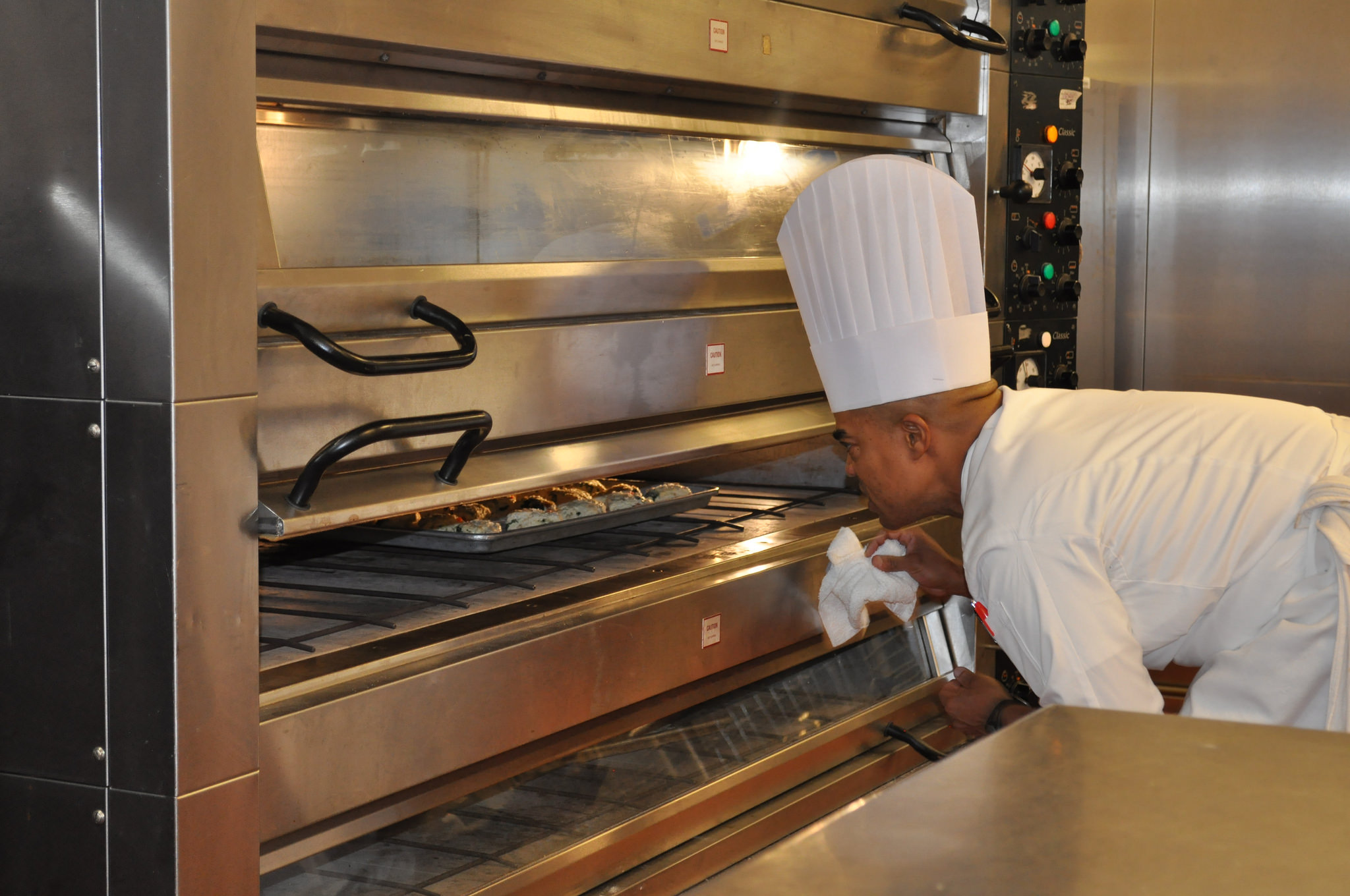
What would you say to other chefs who might learn from your experience?
Gerald Ford: I would say that there is simply no shortcut to passing the exam; don’t waste time looking for one. Spend your time cooking properly and learning from the right people. Get feedback from chefs who have passed the exam, and fail as much as you can in preparation so you don’t have to during the exam. Set the goal and stop at nothing to get there.
Joseph Leonardi: Be true to the style of cooking that is being asked of you during the exam; don’t over complicate things. Have fun while you’re cooking and it will show in your food. Respect your apprentice; stop and think about how they feel and put yourself in their shoes. A true Master Chef will guide that apprentice throughout the day. Show confidence in your cooking ability, butchery skills and how you represent yourself in the kitchen. Pass or fail, learn from the experience, as you will come out a better chef no matter the outcome.
Shawn Loving: I would advise them to strive for excellence, not only in cooking, but in their daily routine. It is so important to stay committed and mean it, even when you are disappointed. If you mess something up, do it again—remain hungry. I continue to stay hungry for more even now, after my success. Those who are my mentors will remain so because they were the masters before I was.

